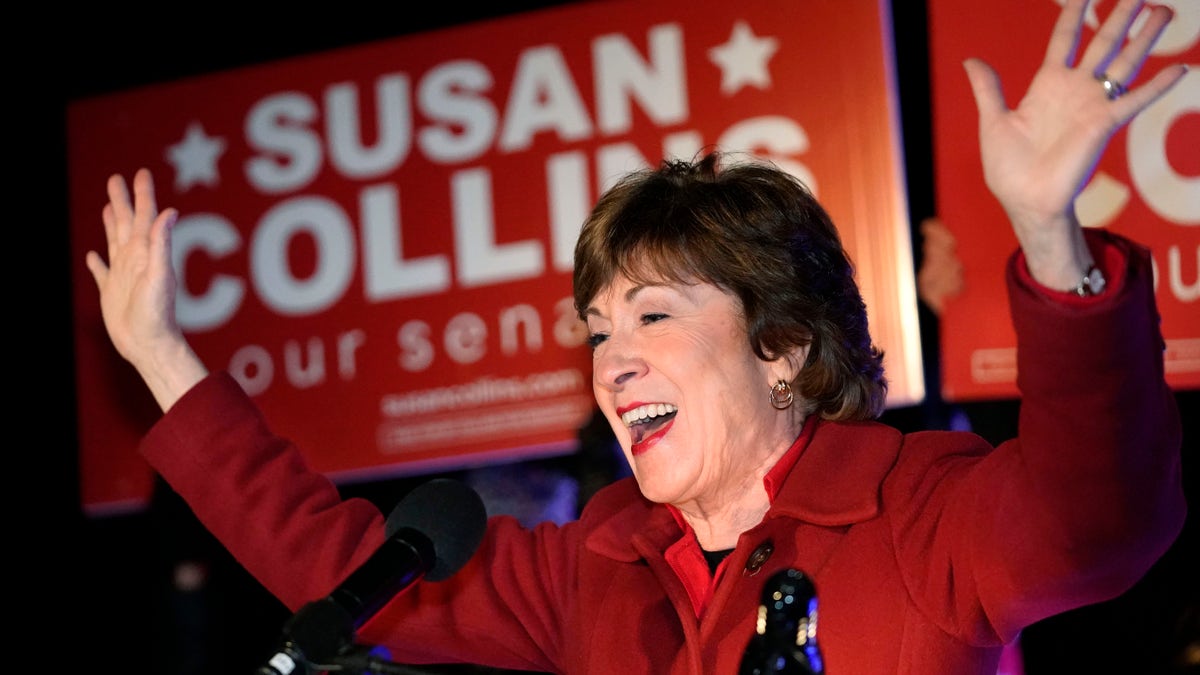Gingrich: Georgia's Senate election will have national consequences
Former House speaker and Georgia congressman sounds off on the fight for Senate control on 'Hannity'
Sen. Susan Collins, R-Maine, could be among the most influential lawmakers when the next Congress convenes in January -- with Senate Republicans holding a 52-48 majority at best.
Collins’ position of prominence wasn’t certain. Polling before the election showed Democrats with a good chance of taking control of the Senate and polls showed her campaigning from behind against her Democratic opponent, Sara Gideon, Maine’s House speaker, who outspent her.
But Democrats’ hopes for a blue wave crashed and Collins handily won her race by 9 points, a larger win than even she expected.
“I was very gratified that the margin was so big -- that people were able to look at the individual,” she told Politico. “They were smart enough to reject the outright lies that Chuck Schumer and his PAC have hoisted.”
Soon after her win, an old colleague, President-elect Joe Biden, called.
She and Biden "have a long-standing relationship that goes back many years and we worked on issues together in the Senate as well as when he was vice president,” she told Politico.

Sen. Susan Collins, R-Maine, addresses supporters just after midnight on Wednesday, Nov. 4, 2020, in Bangor, Maine. (Associated Press)
Collins said she gives “great latitude to presidents in choosing their Cabinets” and believes Biden should in general be able to get his choices through. Still, she said she is not an automatic yes and may vote against a nominee who is out of the mainstream.
“She’s sort of like Sandra Day O’Connor on the Supreme Court,” Sen. John Cornyn, R-Texas, said. “You’re going to have to work for it to persuade her.”
Collins has received calls from at least eight Democratic senators so far, including fellow moderate Joe Manchin, D-W.Va., who wants more bipartisanship. The two co-chair a group called No Labels with bipartisanship as the goal.
“These were by and large my friends. It wasn’t Chuck Schumer calling me, let’s put it that way,” Collins said. “Some of them told me frankly that they’d been instructed by Chuck to not co-sponsor my bills, not work with me to advance legislation. Now, some of them followed that instruction from him but some did not.”
WHO IS SUSAN COLLINS? 5 THINGS TO KNOW ABOUT THE US SENATOR FROM MAINE
Collins’ friendly working relationship with Biden is closer than with President Trump whom she rarely speaks to, although she does talk with White House officials, according to Politico.
Sen. Chris Coons, D-Del., who endorsed Biden for president, also noted that the president-elect has a knack for working across the aisle.
“He wasn’t just friends or working with people who might be closest,” Coons said of Biden’s Senate career. “So remember, he figured out how to work with Jesse Helms,” a conservative former senator from North Carolina. “Having Sen. Collins here and part of conversations is going to be critical and positive.”
Collins is already pushing for another coronavirus aid bill that has stalled and she says can’t wait until the next Congress.
“You’re talking about Jan. 5. And that is way too long,” she told Politico. “And I recognize that unemployment has ticked down somewhat. I’m glad to see it but I don’t see that as being a lasting phenomenon. And certainly, the public health consequences of this pandemic keep getting worse."
CLICK HERE TO GET THE FOX NEWS APP
Democrats have a chance to take the majority with Georgia’s two January Senate runoffs, but history isn’t on their side. If Democrats did win the majority, it would be a 50-50 split with Vice President-elect Kamala Harris breaking ties.













































